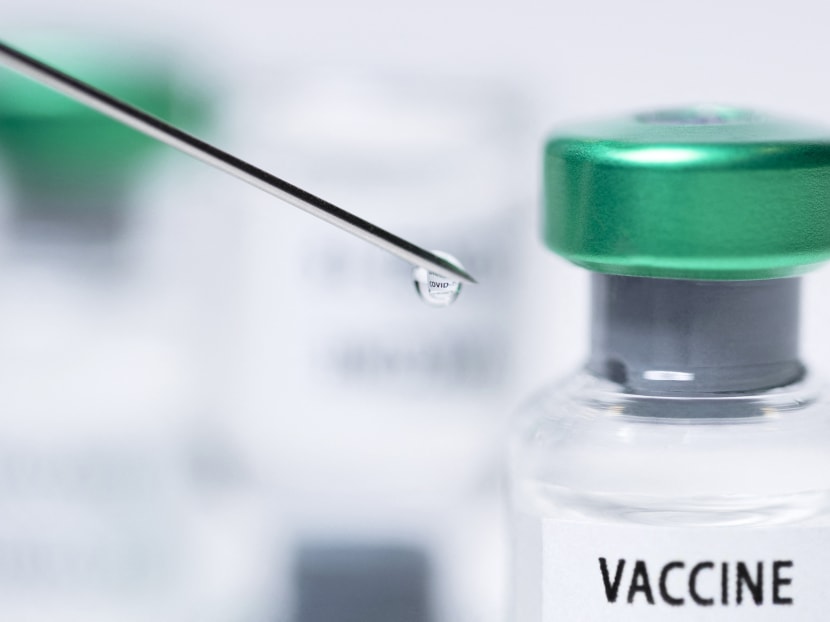Heart inflammation risk after Covid-19 vaccination 'very low' based on international data, S'pore study finds
SINGAPORE — The overall risk of heart inflammation after a Covid-19 vaccination is "very low" and even smaller than that for some vaccines against other diseases such as smallpox.

- The overall risk of heart inflammation after a Covid-19 vaccination is even smaller than for other vaccines
- This was from a new study by Singapore researchers
- The risk was significantly higher for smallpox vaccines, but comparable with vaccines for influenza and other diseases
- However, myopericarditis was nearly four times as common in people who had an mRNA Covid-19 vaccine than a non-mRNA one
- Researchers highlighted that the benefits of vaccination far outweigh the rare risk of heart inflammation
SINGAPORE — The overall risk of heart inflammation after a Covid-19 vaccination is "very low" and even smaller than that for some vaccines against other diseases such as smallpox.
This was part of the findings from a new study published in the peer-reviewed The Lancet Respiratory Medicine medical journal on Tuesday (April 12).
The study, led by a team of researchers in Singapore, concluded that only 18 people out of every million vaccine doses developed myopericarditis — a condition that causes inflammation of the heart muscle that can result in severe permanent heart damage in some cases.
In comparison, non-Covid-19 vaccinations against other diseases such as influenza had an average of 56 cases of heart inflammation for every million doses.
One of the study’s authors, Dr Kollengode Ramanathan, a senior consultant in the department of cardiac, thoracic and vascular surgery at the National University Heart Centre, said: “Our research suggests that the overall risk of myopericarditis appears to be no different for this newly approved group of vaccines against Covid-19, compared to vaccines against other diseases.”
These would be messenger ribonucleic acid (mRNA) vaccines and non-mRNA ones.
The study was also done by researchers from the National University Hospital (NUH) and the National University of Singapore’s Yong Loo Lin School of Medicine (NUS Medicine)
They were prompted to embark on the research due to the increased reports of heart inflammation after people received a messenger ribonucleic acid (mRNA) vaccine for Covid-19, especially in adolescents and young adults.
They analysed more than 20 studies from international databases with reported incidences of myopericarditis following any type of vaccination between January 1947 and December 2021.
Of these, 11 studies looked specifically at Covid-19 vaccinations, covering more than 395 million Covid-19 vaccine doses, the bulk of which were mRNA vaccines.
Traditional vaccines are made by injecting a “dead” virus into the body, while mRNA vaccines work by enabling the human body itself to reproduce harmless parts of the virus for the body to fight off the disease.
Compared with Covid-19 vaccination, the study found that the rate of myopericarditis happening was significantly higher after smallpox vaccinations, but was not significantly different after people received vaccines for influenza and other diseases.
Mr Ryan Ruiyang Ling, an NUS Medicine student who co-authored the study, said: “The scale of mass global vaccination and enhanced surveillance might account for the increased reporting of this adverse event in the context of Covid-19 vaccination.”
However, the study did find that myopericarditis was nearly four times as common in people receiving an mRNA Covid-19 vaccine than a non-mRNA one, and in those receiving their second dose compared with a first or third dose.
There were also more reported cases of myopericarditis among males and people younger than 30.
Mr Ling said that these findings are important considerations when weighing the benefits of a Covid-19 vaccination during this pandemic.
Yet, the researchers highlighted that when someone is infected by the Sars-Cov-2 coronavirus causing Covid-19, this also carries a risk of myopericarditis.
They found that 1.1 per cent of 2.5 million patients hospitalised with Covid-19 had myopericarditis.
Even though the results are not comparable — the rates were measured differently and many of the patients were already suspected to have myopericarditis — the researchers said that the figures provide a frame of reference for comparison.
Dr Jyoti Somani, an infectious diseases specialist at NUH and a co-author of the study, said this highlights that the risks of such rare side effects should be offset by the benefits of vaccination.
The researchers noted that the study only looked at data pertaining to a small proportion of children under 12 years who have only recently become eligible for vaccination and that the results of the study cannot be generalised to this age group.
“Future research investigating the incidence of myopericarditis in this age group would inform clinical decision making for vaccinating children against Covid-19,” Dr Ramanathan said.








